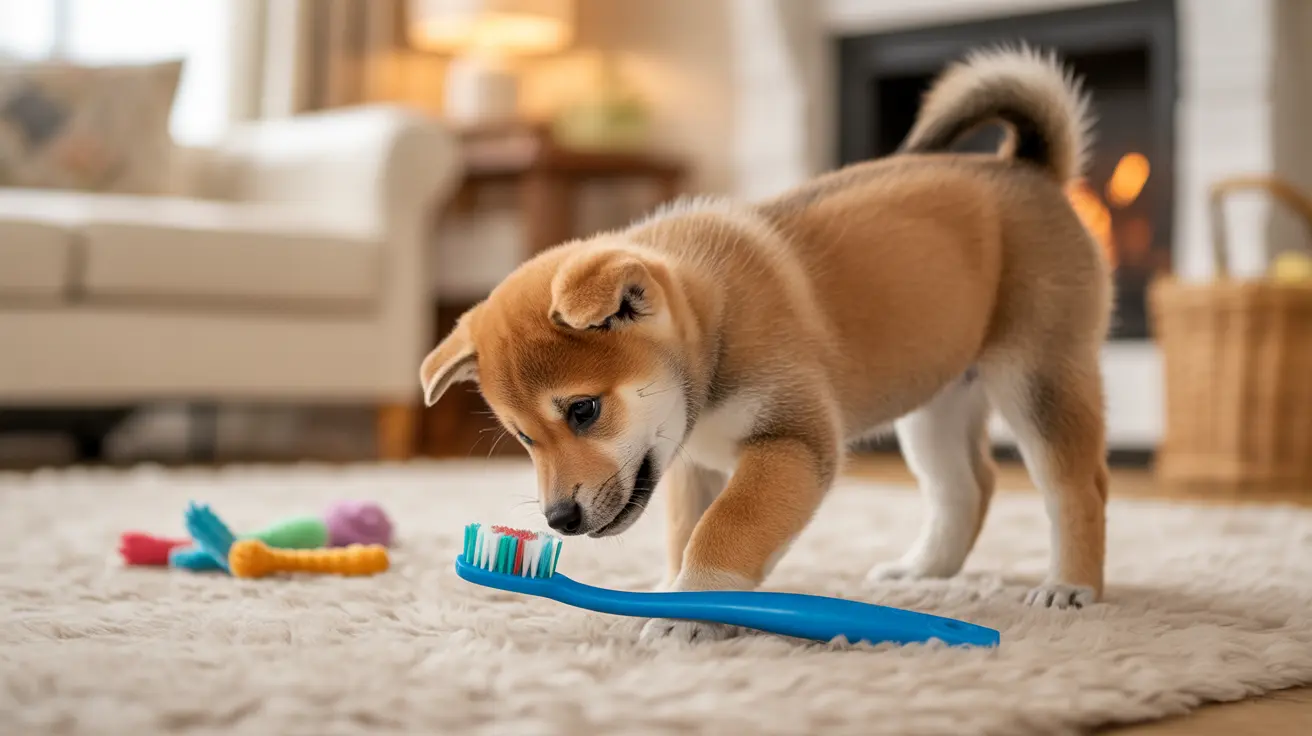Establishing good dental hygiene habits early in your puppy's life is crucial for their long-term health and well-being. Many new pet parents wonder about the right time to begin brushing their puppy's teeth. This comprehensive guide will walk you through the optimal timing, techniques, and tools needed to start your puppy on the path to excellent oral health.
With up to 80% of dogs showing signs of dental disease by age three, starting dental care early isn't just recommended—it's essential. Let's explore everything you need to know about initiating and maintaining your puppy's dental care routine.
The Perfect Time to Start Brushing Your Puppy's Teeth
The ideal time to introduce tooth brushing is when your puppy is between 6-8 weeks old. At this stage, puppies are naturally curious and adaptable, making it easier to establish positive associations with dental care routines.
During the first few weeks, focus on gentle familiarization rather than actual brushing. Let your puppy explore the toothbrush and taste pet-safe toothpaste. This foundation of positive experiences will make future brushing sessions much more manageable.
Understanding Your Puppy's Dental Development
Your puppy's mouth undergoes significant changes in their first few months of life. They start with 28 deciduous (baby) teeth, which are gradually replaced by 42 permanent adult teeth between 12-24 weeks of age.
This teething period is crucial for dental care introduction, as puppies are already experiencing various sensations in their mouth. However, be gentle during this time, as their gums may be sensitive from teething.
Essential Tools and Techniques
Success in puppy dental care relies heavily on using the right tools and approach:
- Soft-bristled puppy toothbrush or finger brush
- Dog-specific enzymatic toothpaste (never use human toothpaste)
- Dental wipes for initial mouth handling
- Appropriate teething toys for comfort
Start with short, positive sessions, gradually increasing duration as your puppy becomes more comfortable. Always end with praise or a small treat to reinforce good behavior.
Establishing a Consistent Routine
Consistency is key to successful dental care. Aim to brush your puppy's teeth daily, preferably at the same time each day. Many pet parents find success brushing after their puppy's evening meal or before bedtime when they're naturally calmer.
Even if you can't manage daily brushing, maintaining a schedule of at least 3-4 times per week can significantly impact your puppy's dental health.
Signs of Dental Problems to Watch For
While establishing your brushing routine, stay alert for these warning signs:
- Bad breath (beyond normal puppy breath)
- Excessive drooling
- Reluctance to eat or chew
- Red or swollen gums
- Visible tartar buildup
- Bleeding or discolored gums
If you notice any of these symptoms, consult your veterinarian promptly.
Frequently Asked Questions
When should I start brushing my puppy's teeth for the best dental health?
Start familiarizing your puppy with tooth brushing between 6-8 weeks of age. Begin with gentle mouth handling and progress to actual brushing as they become comfortable.
What is the best way to introduce my puppy to toothbrushing without causing stress?
Start slowly by letting them taste pet-safe toothpaste and explore the toothbrush. Make sessions short and positive, always rewarding cooperation with praise or treats.
Should I brush my puppy's teeth before or after their adult teeth come in?
Start gentle mouth handling and familiarization before adult teeth emerge, then progress to more thorough brushing once permanent teeth are in place (around 6 months of age).
How often should I brush my puppy's teeth to prevent dental disease?
Daily brushing is ideal, but aim for at least 3-4 times per week. Consistency is more important than frequency when establishing the habit.
What tools and products do I need to safely brush my puppy's teeth at home?
You'll need a soft-bristled puppy toothbrush or finger brush, dog-specific enzymatic toothpaste, and optional dental wipes. Never use human toothpaste, as it can be harmful to dogs.
Conclusion
Starting your puppy's dental care routine early sets the foundation for a lifetime of good oral health. Remember that patience and consistency are key to success. With the right approach and tools, you can help your puppy develop positive associations with tooth brushing that will last throughout their life.






